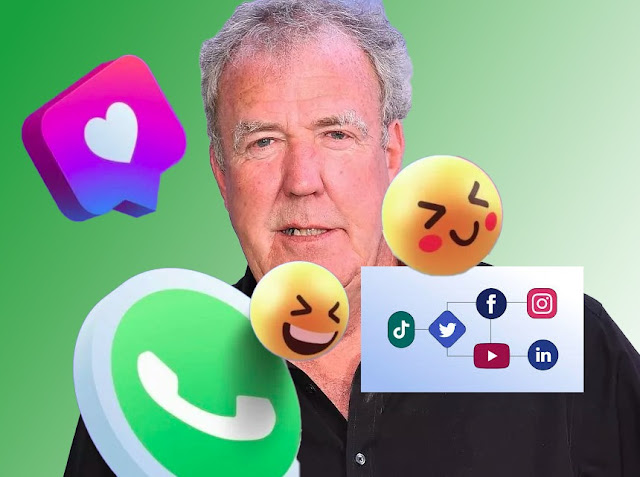From ignoring trolls to building a support network, this guide equips you with the tools to navigate the challenges of online trolling and maintain a positive online experience.
 |
| The examine, the rise of trolling on social media, Jeremy Clarkson. Image/ Illustration: ChicHue |
Los Angeles, California, USA --- January 11, 2025:
The pervasive nature of trolling on social media platforms has become a significant concern. While occasional lighthearted banter is acceptable, persistent and malicious trolling can have a profound impact on mental well-being and overall online experience.
Trolls, driven by various motivations, often employ tactics designed to provoke, disrupt, and undermine others. Their actions, whether through abusive language, personal attacks, or the dissemination of misinformation, can create a hostile and intimidating online environment.
This constant barrage of negativity can have a significant impact on mental health, leading to anxiety, depression, decreased self-confidence, and even feelings of isolation. Furthermore, the constant need to monitor and potentially respond to trolls can significantly impact focus and productivity, both personally and professionally.
The impact of trolling extends beyond individual experiences. It can erode the quality of online discourse, discourage meaningful conversations, and create a climate of fear that silences dissenting voices. This can have detrimental effects on the free exchange of ideas, the ability to engage in constructive dialogue, and the overall health of online communities.
When faced with trolling, it's crucial to remember that your self-worth is not defined by the opinions of online strangers. Prioritizing self-care and maintaining a healthy perspective are essential in navigating these challenging interactions.
One of the most effective strategies for dealing with trolls is to simply ignore them. By withholding the desired reaction, you can often disengage them and prevent them from perpetuating their behavior. Limiting your time on social media platforms that are prone to trolling can also be beneficial in reducing exposure to negativity.
Social media platforms offer valuable tools to mitigate the impact of trolls. Utilize features such as blocking, muting, and reporting to limit their reach and influence. Many platforms also provide options for filtering out specific keywords or phrases, allowing you to curate your online experience and minimize exposure to harmful content.
Building a strong support network is crucial in navigating the challenges of online trolling. Surround yourself with positive influences, engage in meaningful conversations with trusted friends and family, and seek support from online communities that foster respectful and constructive dialogue.
If trolling is significantly impacting your mental health, consider seeking support from a therapist or counselor. They can provide guidance on coping mechanisms, stress management techniques, and strategies for building resilience in the face of online adversity.
While a well-placed witty response can sometimes defuse a situation, it's crucial to avoid escalating the conflict. Engaging in a tit-for-tat exchange can often escalate the situation and provide the troll with the attention they seek. Instead, focus on de-escalating the interaction, redirecting the conversation, or simply disengaging from the exchange altogether.
Remember, you have the power to control your online experience. By prioritizing self-care, utilizing platform tools, building a supportive network, and focusing on positive interactions, you can effectively navigate the challenges of online trolling and maintain a positive and fulfilling online experience.
The example of Jeremy's trolls:
A notable example of how trolling can extend beyond individual interactions occurred when Jeremy Clarkson, a well-known television personality, expressed his concern over the insensitivity of some social media users towards celebrities affected by the California wildfires.
Clarkson argued that dismissing the suffering of these individuals based on their wealth was unfair and that all victims of the disaster, regardless of their fame, deserved empathy and support.
This incident highlights how trolling can not only impact individuals but also influence public discourse and shape societal attitudes.